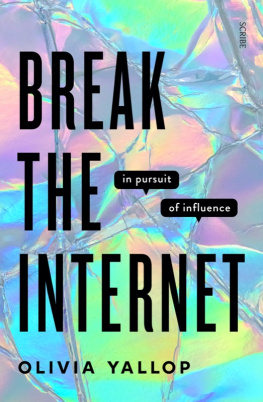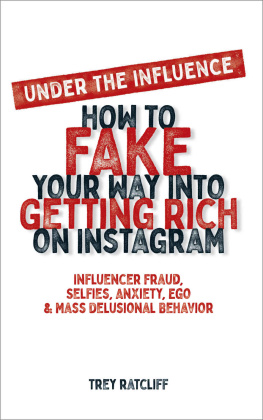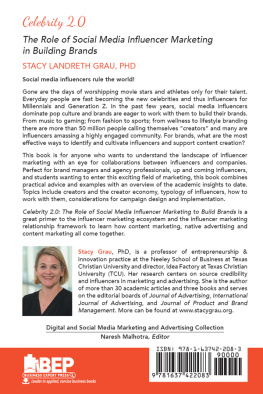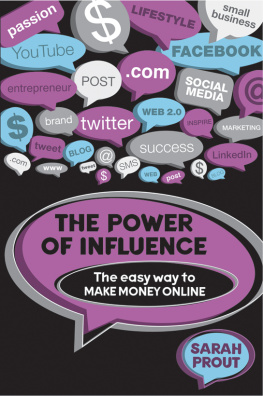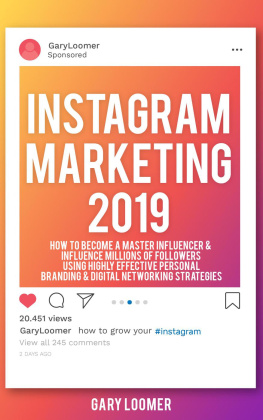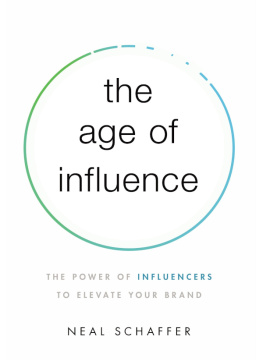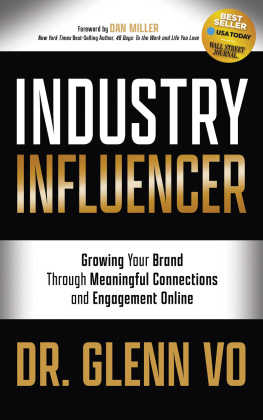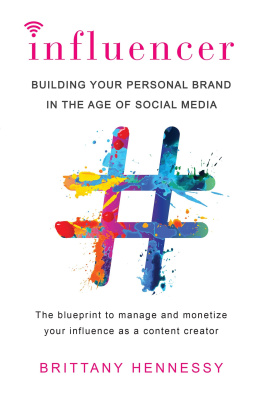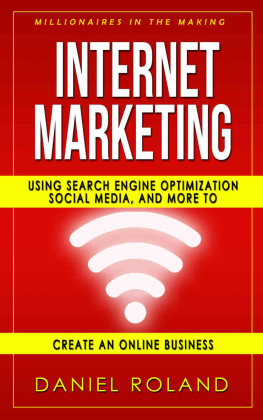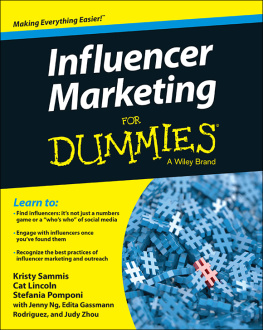
BREAK THE INTERNET
OLIVIA YALLOP is a digital strategist and commentator on technology and pop culture. She has a degree from the University of Oxford and lives in London.
Scribe Publications
2 John St, Clerkenwell, London, WC1N 2ES, United Kingdom
1820 Edward St, Brunswick, Victoria 3056, Australia
3754 Pleasant Ave, Suite 100, Minneapolis, Minnesota 55409, USA
Published by Scribe 2021
Copyright Olivia Yallop 2021
All rights reserved. Without limiting the rights under copyright reserved above, no part of this publication may be reproduced, stored in or introduced into a retrieval system, or transmitted, in any form or by any means (electronic, mechanical, photocopying, recording or otherwise) without the prior written permission of the publishers of this book.
The moral rights of the author have been asserted.
At the time of writing, all quotations and information sourced from web pages were accurate and all URLs linked to existing websites and social media accounts. The publisher is not responsible for and should not be deemed to endorse or recommend any website other than our own or any content available on the internet (including without limitation, any website, blog post, or information page) that is not created by the publisher.
978 1 913348 33 5 (UK edition)
978 1 922310 20 0 (Australian edition)
978 1 950354 87 0 (US edition)
978 1 922586 07 0 (ebook)
Catalogue records for this book are available from the National Library of Australia and the British Library.
scribepublications.co.uk
scribepublications.com.au
scribepublications.com
Break the Internet:
To post something that causes a very large amount of interest, shock, or excitement, with a large number of people sharing or reacting to what you have posted. Example: This cute kid basically broke the internet, with his video getting almost a billion views. (Cambridge Dictionary)
In 2016, The Webbys introduced their inaugural Break the Internet Award, granted to a person with an undeniable talent and natural ability to use the Internet to create buzz, engage with fans and communities, and get the world to pay attention. The first recipient was Kim Kardashian.
CONTENTS
Chapter 1
What is an influencer?
Chapter 2
Where do social media stars come from?
Chapter 3
How do you become an influencer?
Chapter 4
What is it like to live online?
Chapter 5
How much do creators really earn?
Chapter 6
Is all attention good attention?
Chapter 7
Who influences the influencers?
Chapter 8
Is this the end of influence?
PREFACE
Its increasingly obvious to me that the teenagers and twenty-somethings who have mastered these platforms and who are often dismissed as shallow, preening narcissists by adults who dont know any better are going to dominate not just internet culture or the entertainment industry but society as a whole.
KEVIN ROOSE, THE NEW YORK TIMES
I can still remember the first time I accessed the internet. I was around seven, and my schools Information and Communications Technology lessons 45 minutes every other Tuesday in a room that smelt of stale air and static had reached a long-anticipated crescendo. After weeks spent generating imaginary ClipArt party invites in Microsoft Publisher and practising loading and ejecting floppy discs (the name was misleading: they snapped if you bent them too much) the class was going to learn to surf.
I was dimly aware of the internet: my parents intermittently announced they were off to look at emails and I occasionally liberated a bulky PalmPilot from my dads suit jacket to role-play an adult with an office job, but I had no idea what being on the internet would actually entail. Arranged in rows, two to a computer, hovering at the edge of infinity, we patiently awaited our instructions. The screensavers displayed a sunlit, pixelated meadow: it was somehow everywhere and nowhere all at once. In the foreground the Internet Explorer icon floated; its cobalt, curvilinear e, encircled by a planetary ring, offered intergalactic possibilities.
The strenuous effort required to dial up felt like a full body experience. I cringed at the graunching sound of millennium Dell technology cranking into action and squirmed with every passing minute of expensive bandwidth. The school keyboards made clacking sounds and the beige plastic servers shuddered as they laboured to connect.
What the class discovered, after several agonising minutes, was underwhelming. There was no sci-fi binary code, no sleek dashboard with which to navigate through cyberspace: just a flat grey browser box and a loading bar gradually inching its way into existence. Over the weeks that followed, we learned to scroll Yahoo and AOL, click brightly coloured hyperlinks, tap concise requests into Ask Jeeves search bar, and watch images slowly unfold themselves.
We also learned what to avoid. The internet was out to get you; hackers and phishers and spammers were waiting to unleash a bug or a thousand-year chain email curse. Danger lurked in chat rooms, on forums, and in unmemorised website addresses. A list of friendly sites hung above the classroom printer, typed in Comic Sans. I cant remember much about my ICT teacher, but I will always remember what she said: never, ever, under any circumstances, share any personal information about yourself on the internet. If someone asks you, say no and log off straight away.
Jump ahead two decades, and shed be disappointed. Today we share our most private info willingly. Oversharing online has become not just a common pastime, but a highly lucrative industry, making millionaires of its most popular protagonists. Many of these are now household names who communicate en masse with multi-millions, mining their experiences for TikTok clips backed by 15-second trending tracks, breathlessly gesturing into a front-facing camera to broadcast personal milestones and invite unseen strangers into intimate domestic moments.
In the years that have elapsed since I first learnt to surf, sharing yourself online has become second nature, whilst the logic of engagement and self-optimisation has begun to permeate every corner of our lives, both on the internet and IRL. Influencers masters of online attention are both emblematic of our present moment and a harbinger of where were headed next. We no longer need to dial up. Increasingly, it seems unlikely that well ever get to log off either.
CHAPTER 1
THE MILLION-FOLLOWER POLICY
WHAT IS AN INFLUENCER?
Its 8.45 pm on a rainy Thursday in August, and Im standing in the marble lobby of an obnoxiously expensive hotel in central London. The sweeping staircase has been cordoned off and the air is still. Sleek-haired staff hover, pawing at their iPads and shooting intermittent glances towards the revolving doors and the gloomy street beyond. A chandelier casts a champagne glow over the motionless tableau.
Perspiration is condensing in the curve of my lower back. I catch my reflection in a perfectly polished lift door and regret wearing trainers. We are not waiting on the arrival of an A-list actor, chart-topping popstar, minor royal or political leader. There are no paparazzi outside, nor will there be any press coverage in the tabloids come the morning. But the evening will be livestreamed in full 360-degree glory to over 100 million viewers waiting in breathless anticipation all around the world.
Were waiting to welcome a new kind of celebrity: the stars of social media. A Whos Who of top fashion and beauty influencers are congregating tonight for the UK launch of an LA-based fast fashion label lets call them Babe. The company or more accurately, empire has built a billion-dollar business from the power of social media influence. You may not know their name, but if youve accessed Instagram at any point over the last three years you will have probably come into contact with their particular brand of glossy, impossible aspiration.
Next page
